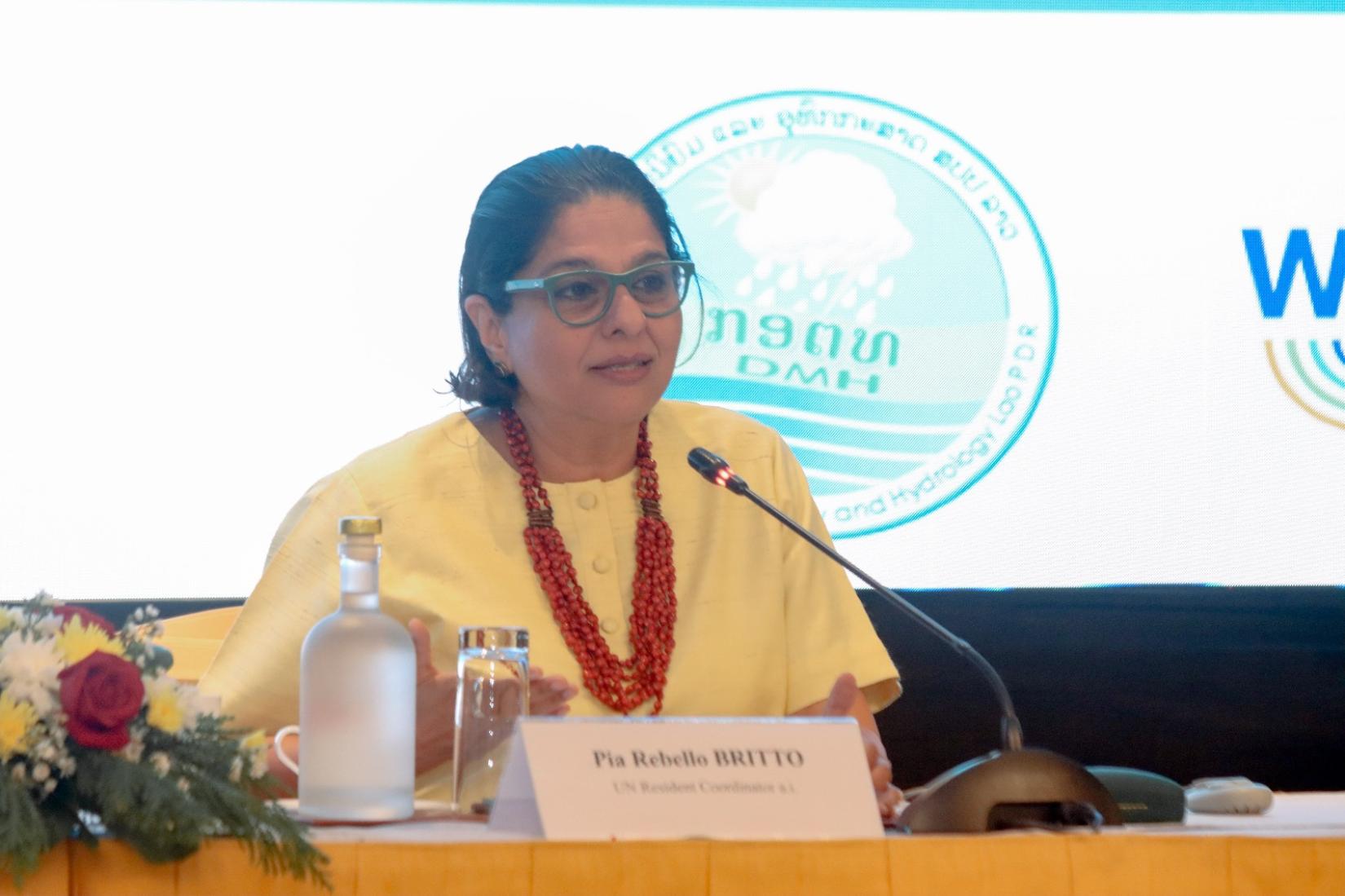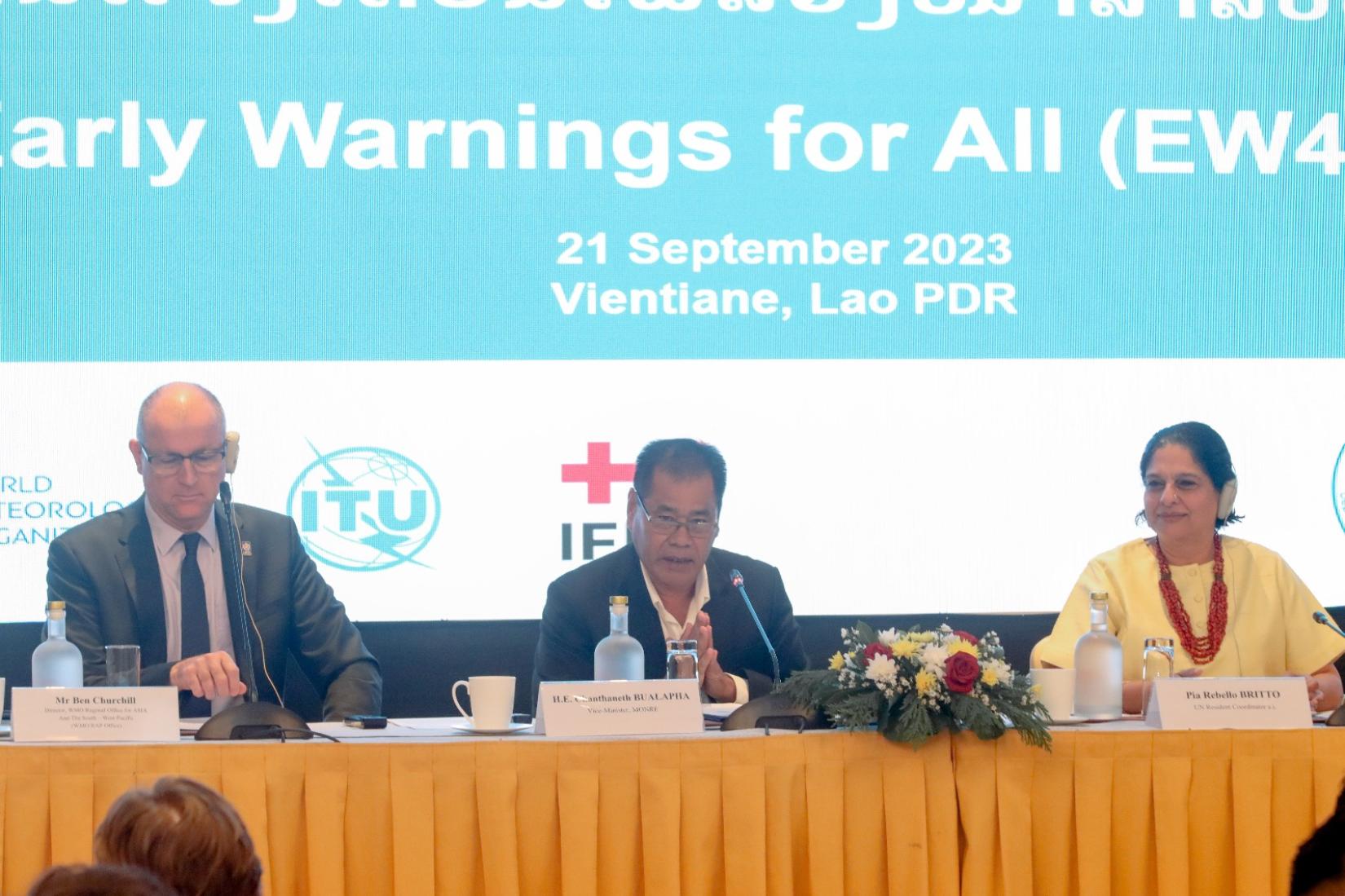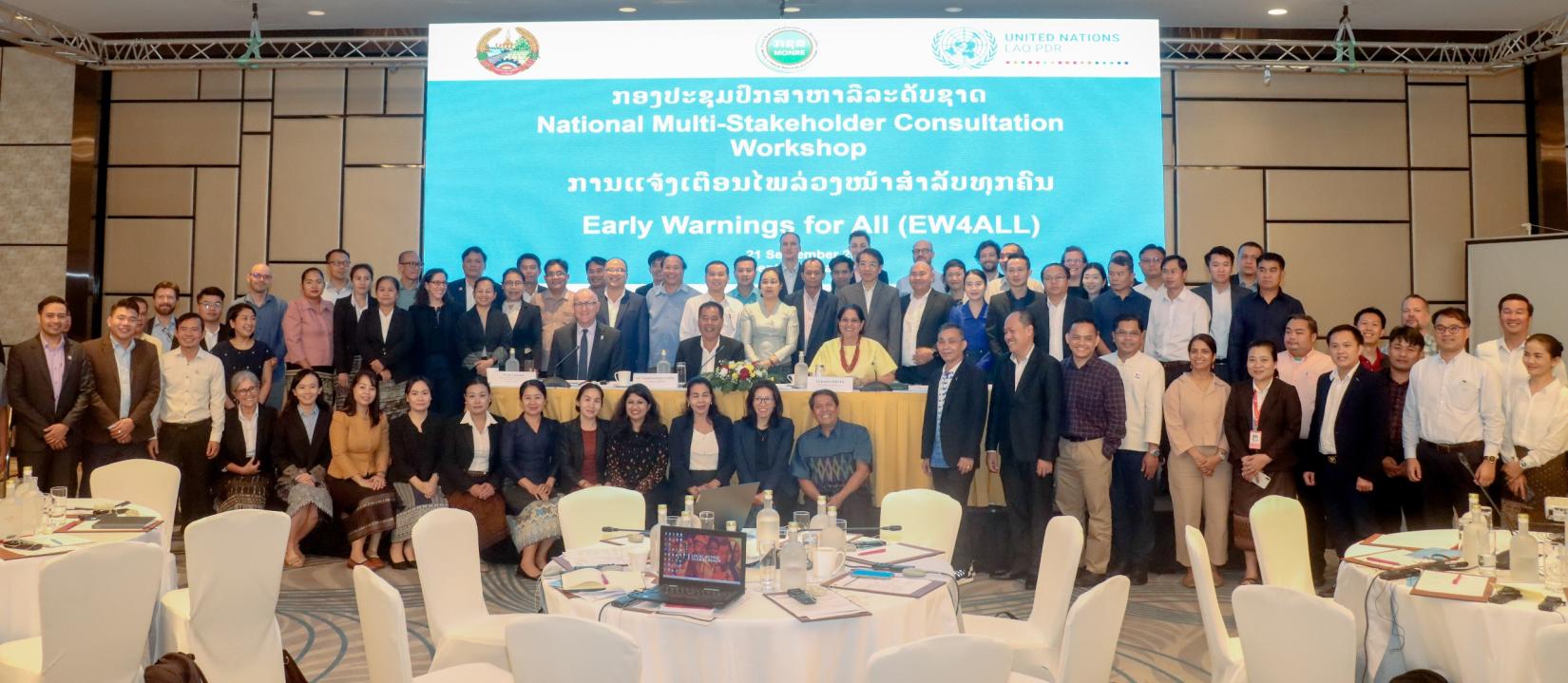Opening Remarks at the Early Warnings for All (EW4ALL) National Consultation Workshop
Opening Remarks at the Early Warnings for All (EW4ALL) National Consultation Workshop



Resident Coordinator a.i.
Thursday, 21 September 2023, Vientiane, Lao PDR
Venue: Crowne Plaza Hotel
Honorable Vice Minister Mr. H.E. Chanthaneth BUALAPHA, Ministry of Natural Resources and Environment,
Development partners and colleagues from the UN,
Representatives from the private sector
Distinguished participants.
Good morning and a warm welcome to all of you.
As the UN Resident Coordinator ad interim for Lao PDR, I am delighted to deliver the opening remarks along with the esteemed Vice Minister at this very important multi-stakeholder national consultation workshop on the Early Warnings for All (EW4ALL) initiative.
Today’s workshop is the culmination of several weeks of preparations and pre-consultations, and I wish to commend the Department of Meteorology and Hydrology (DMH), Ministry of Natural Resources and Environment, the national focal agency for EW4ALL as appointed by the Prime Minister for bringing us all together today.
I also want to express my appreciation to all the line ministries, UN agencies, INGOs, development partners, and private sector representatives present here today. Your participation highlights our collective commitment to addressing the critical issue of early warning systems in Lao PDR.
Ladies and gentlemen, we are gathered here to discuss and strategize on how we can enhance inclusive, multi-stakeholder, "end-to-end," and "people-centered" early warning systems in Lao PDR.
It started almost a year ago: at COP27 in November when the UN Secretary-General Mr. António Guterres launched the Early Warnings for All (EW4ALL) initiative with the ambitious aim of ensuring that all countries establish inclusive, multi-stakeholder early warning systems by the end of 2027.
Scaling this initiative into action on the ground, the UN Secretary-General convened an Advisory Panel in March 2023 consisting of leaders from UN agencies, multilateral development partners, humanitarian organizations, civil society, insurance, and IT companies. The aim was to inject more political, technological, and financial clout to ensure that EW4ALL becomes a reality for everyone, everywhere.
The first cohort of the EW4ALL initiative covers 30 countries, in particular at-risk countries, including Small Island Developing States and Least Developed Countries, including Lao PDR.
Ladies and Gentlemen, the EW4ALL initiative seeks to address gaps across the four key pillars of early warning systems: understanding disaster risk; monitoring and forecasting; communication; and preparedness and response capacity.
The aim of this initiative is NOT to reinvent the wheel, but rather promote collaboration and synergies to harness the comparative advantage of stakeholders, building upon existing programmes and initiatives in the country.
At the global level, the World Meteorological Organization (WMO) and the United Nations Office for Disaster Risk Reduction (UNDRR) are spearheading this initiative, along with the International Telecommunication Union (ITU) and the International Federation of Red Cross and Red Crescent Societies (IFRC). A special welcome to our colleagues from these agencies who have travelled to Vientiane to co-facilitate this important workshop today.
Ladies and Gentlemen, the successful implementation of Early Warnings for All (EW4All) will require significant financial resources to implement the action plan on a global, regional, and national scale.
At the global level, the pillar leads of EW4All have agreed on principle to avoid creating new financing mechanisms and focus instead on leveraging established and proven funding and programming approaches. For instance for WMO, this means expanding existing initiatives such as the Climate Risk and Early Warning Systems Initiative (CREWS) and the Systematic Observations Financing Facility (SOFF). Additionally, efforts will be made to enhance activities like the Flash Flood Guidance System (FFGS) and the Multi-hazard (Impact-Based) Early Warning Services (MHEWS).
Ladies and gentlemen, as we are all aware, Lao PDR is prone to various climate-induced hazards, including floods, droughts, and landslides. These hazards pose significant risks to communities, agriculture, infrastructure, the economy, and overall development of the country. However, we firmly believe that through collaborative efforts and the implementation of early warning tools, we can mitigate the impact of these disasters and build a more resilient nation.
This workshop serves as a vital platform for exchanging knowledge, sharing best practices, and identifying gaps in our existing early warning systems. Through collaborative discussions and knowledge sharing, we aim to formulate an EW4ALL Road Map for the period 2023-2027 by the end of this year. This roadmap will serve as a strategic framework to guide our efforts in strengthening the early warning system across the country.
Ladies and Gentlemen, to conclude, let us remember that our collective efforts can make a real difference in safeguarding the well-being of our people and preserving our environment.
I wish you all productive discussions and may the outcomes of our efforts today pave the way for a stronger, more inclusive, and forward-thinking early warning system in Lao PDR.
Thank you.






